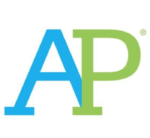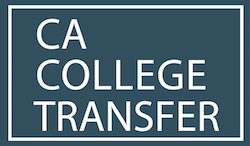12 Overlooked Items in the UC Application
The UCs have revamped its UC application.
The only real difference is that it’s way more attractive, with tips and pointers, and you can now pile up to 20 extra-curricular activities in any category you wish, as opposed to a limit of five activities per each of the four sections.
Rather than go over that which is fairly self-evident, below are 12 things that might get overlooked:
 1. Use the same email account for all applications.
1. Use the same email account for all applications.
And, ideally, use a non-school issued email account. Also if there are multiple members of your family applying, each applicant needs their own email address.
 2. It’s a good idea to add an alternate major.
2. It’s a good idea to add an alternate major.
Even though not every UC accepts an alternate major (Berkeley 100% does not) it’s a good add, in case the UC decides to use it as a fall back if your first major doesn’t pan out. For the alternate, you also must fulfill the requirements as listed on assist by spring and I suggest not adding an impacted/selective alternate. For one, some UCs won’t allow it and second of all, adding a major that is equally as hard as the first (or harder) limits your chances.
 3. There’s a tab that shows Closed Majors.
3. There’s a tab that shows Closed Majors.
When you hit the major section of the application, there’s a tab at the top thats ays Closed Majors. If you see a lot of closed majors recheck the term you selected, as well as any past deadlines. Fall term should not show many closed majors unless you passed the application deadline.

4. Some majors require submission of a supplemental application.
If you select such a major and a supplemental application is required, information about it will be displayed on the screen. If the supplemental application is not completed by the deadline, campuses are not required to continue reviewing the application and most will reject it outright. This is a big reason for Haas application rejections.
 5. Enter all coursework and grades, including non-transferable, D and F grades, Ws and Academic Renewals (AR).
5. Enter all coursework and grades, including non-transferable, D and F grades, Ws and Academic Renewals (AR).
Missing course/grade information may be viewed as falsification and result in cancellation of the application.
 6. My issue with the Transfer Pathways.
6. My issue with the Transfer Pathways.
I’ve said it before. Im not a big fan of the Transfer Pathways. If you are a borderline student and simply want to ensure you get in somewhere, it’s a good thing to check. If you’re a strong candidate and have your sights on top tier, avoid checking it. Here’s why: There is a loophole in the terms of the Pathways that states the UCs have the right to toss you into any UC if you fulfill the Pathway rules — even a UC to which you didn’t apply. While I don’t suspect they are doing that with 3.9s, the point is you really don’t know and you could theoretically end up at a UC to which you didn’t apply. At the very least you are giving the UC in question a pass at any sensation of guilt (well, they’ll get in somewhere). I’m not happy with that loophole and since not checking Pathways does not impact the application, I say leave it unchecked.
 7. The Additional Comments box should be used to provide information about specific academic issues.
7. The Additional Comments box should be used to provide information about specific academic issues.
These include bad grades or a downward turn, gaps in education, repeated courses, or courses taken in special programs.
 8. Reporting AP scores
8. Reporting AP scores
If all you have are sub-par scores (meaning below a 3), you do not have to add them to the application and you do not need to submit them if admitted to the campus. However, if you have some higher scores you are noting in the application, keep in mind, the College Board will send all the scores, including the low ones. In that case, list all scores in the application. The UCs don’t care about the low scores, so don’t fret.
 9. TOEFL and IELTS
9. TOEFL and IELTS
December of the year the student applies is the last acceptable test date for TOEFL/IELTS and official test scores are due by January 31. If applying to multiple UC’s, send the official score report to one campus and the score will be shared with all campuses to which the student applied.
 10. International external exams
10. International external exams
Students must self-report completed and planned international external exams, such as (I)GCSE, O-level, GCE A-level, India Standard X and XII, etc. Predicted IB scores, if available, should also be entered.
 11. Extra-curricular activities
11. Extra-curricular activities
If you did not have the time or opportunity to participate in school or community activities, it is helpful to explain why. Explain how you used your time (for example, caring for siblings or children, eldercare, homework, research projects, full-time employment, etc). Transfer applicants should focus primarily on post-high school activities in the EC section, although the last year of high school is fine if it’s just a year or so prior. ECs are not as important for transfer students, although applicants to pre-med-related or business/econ will be more competitive if there are some major-related activities. Also, just because you’re allowed to put up to 20 ECs in doesn’t mean loading it up with inconsequential dumb stuff. Keep it relevant!
 12. Authorization Release
12. Authorization Release
Checking release authorization to share the application information with scholarship agencies, parents and guardians, counselors and UC organizations and alumni groups is a good thing to do.



Comments (0)